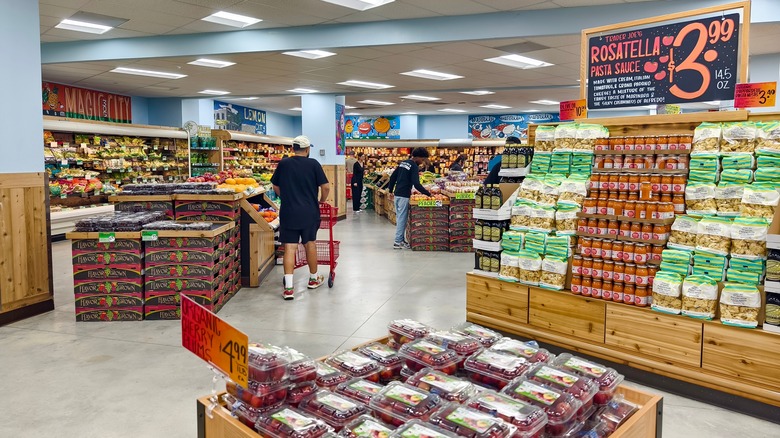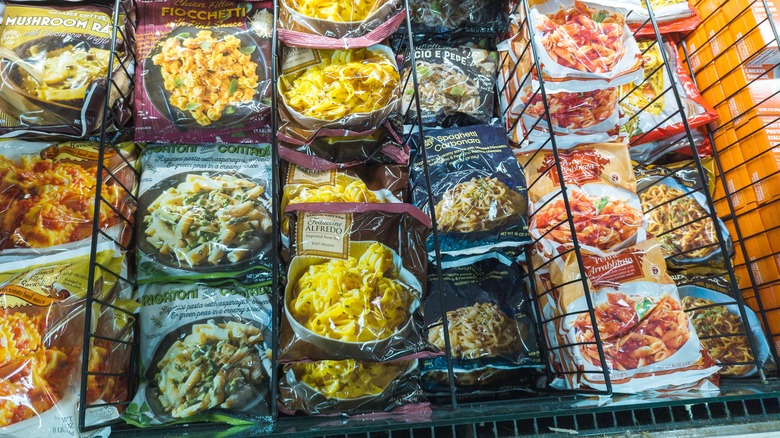What Is The Trader Joe's 'Fake Food' Conspiracy And Does It Hold Any Ground?
Trader Joe's is known for its distinctive atmosphere, created by its unique Tiki theme and secret global supply chain. This unique business approach makes the company a frequent topic of conversation, including the recent conspiracy theory that the store sells "fake food."
Clips circulating on TikTok and Youtube have questioned the surprisingly long shelf life of certain products. One user expressed shock over a chicken dish that remained fresh for a month. Another noted that some Trader Joe's items are comparable to McDonald's infamously never-rotting burgers, claiming they have a composition that won't easily break down. The term "fake" here doesn't imply the items are mislabeled copies, but rather that the food content is lower quality than advertised. In response to the controversy, however, social media nutritionists and food supply experts have been quick to offer explanations.
@foodsciencebabe If you're wondering how conspiracy theories get started... #traderjoes #fakefood #foodscience #foodsafety #conspiracytiktok
For example, one user explains that many Trader Joe's items sealed with thick plastic use a preservation method called modified atmosphere packaging (MAP). By employing either a vacuum seal or a gas injection, both proteins and produce are effectively blocked from degradation, thereby extending their durability for several weeks. All the while, the flavor is minimally impacted (if at all), and even the nutrition is preserved. So, if you notice a ready-made Trader Joe's meal with a long shelf life, credit advanced packaging techniques rather than conspiracy.
High standards ensure Trader Joe's food is authentic
Combine Trader Joe's impressive, eclectic variety with a low cost, and it's understandable that the store's offerings can feel a little too good to be true. Especially since the retailer carries many exclusive items sourced from abroad, their lack of availability elsewhere might further incite skepticism. Admittedly, as with other grocery stores, the quality does vary — you might want to avoid the worst Trader Joe's frozen pizza, for example. Yet rest assured, the retailer sells a highly curated item selection, which goes through a meticulous quality control process.
As a result, there's no need to worry over a potentially "fake" offering — and if you notice that your favorite Trader Joe's frozen entree doesn't even have an expiration date, don't worry. According to the USDA, frozen food technically never spoils (though the flavor might change over time). When you consider this — and the fact that most of the store's prepared meals are kept in Trader Joe's iconic frozen food aisle — the food's long-lasting freshness is not actually surprising.
Furthermore, Trader Joe's website states that none of its private-label products contain artificial flavors or preservatives. The store adheres to the FDA's definition of all-natural compounds: a rigid set list of allowed, derived foodstuffs for the label. Plus, the retailer sticks to natural sources for all its preservatives, too. So among grocers, Trader Joe's maintains a surprisingly stringent ingredient approach, further showcasing that the conspiracy's off-base.


